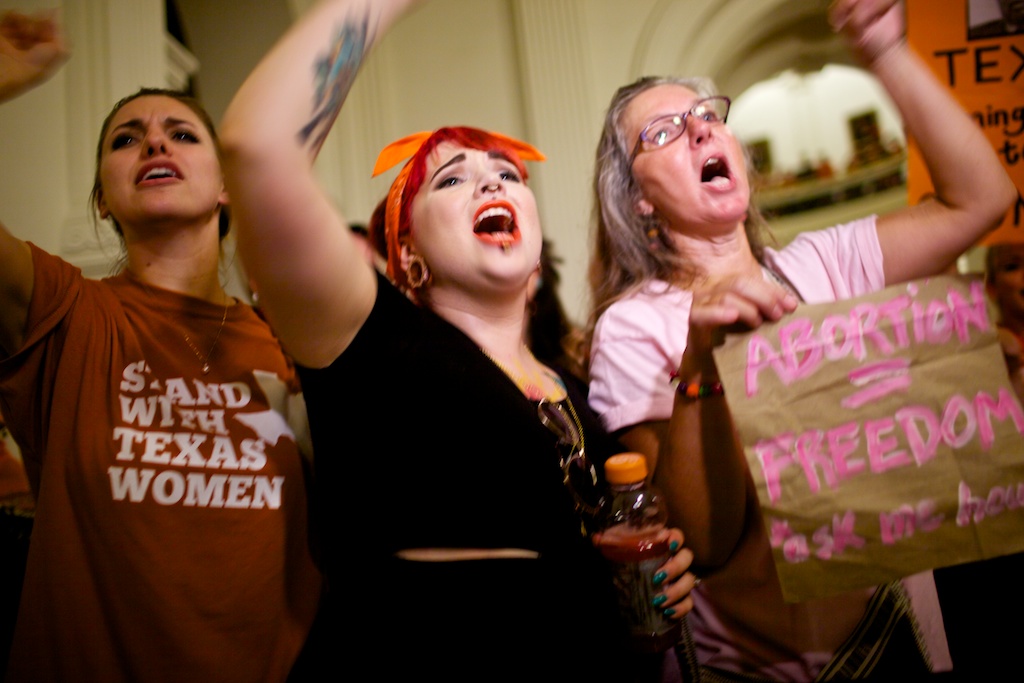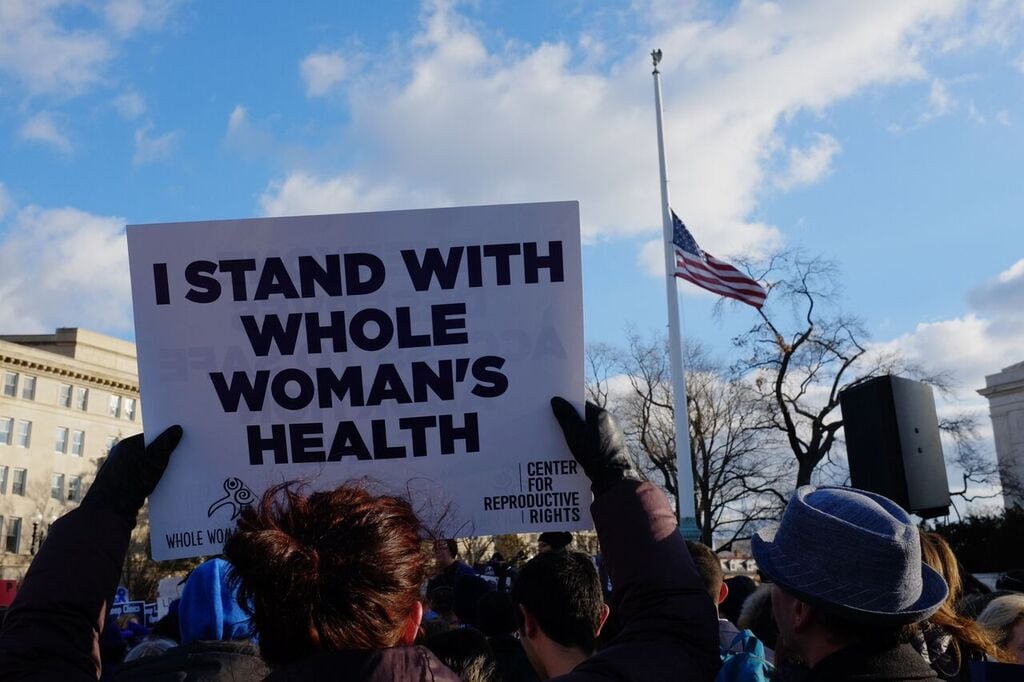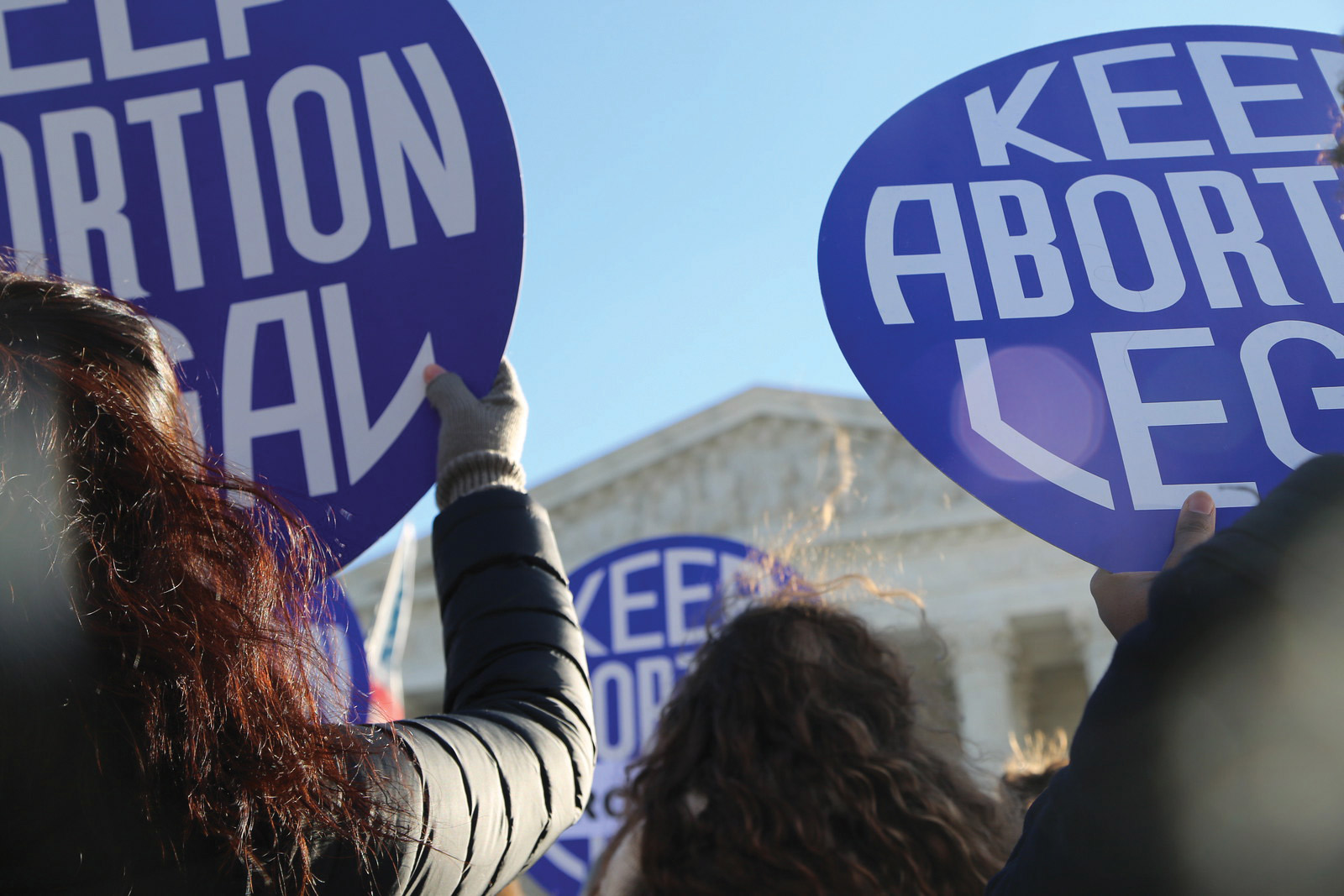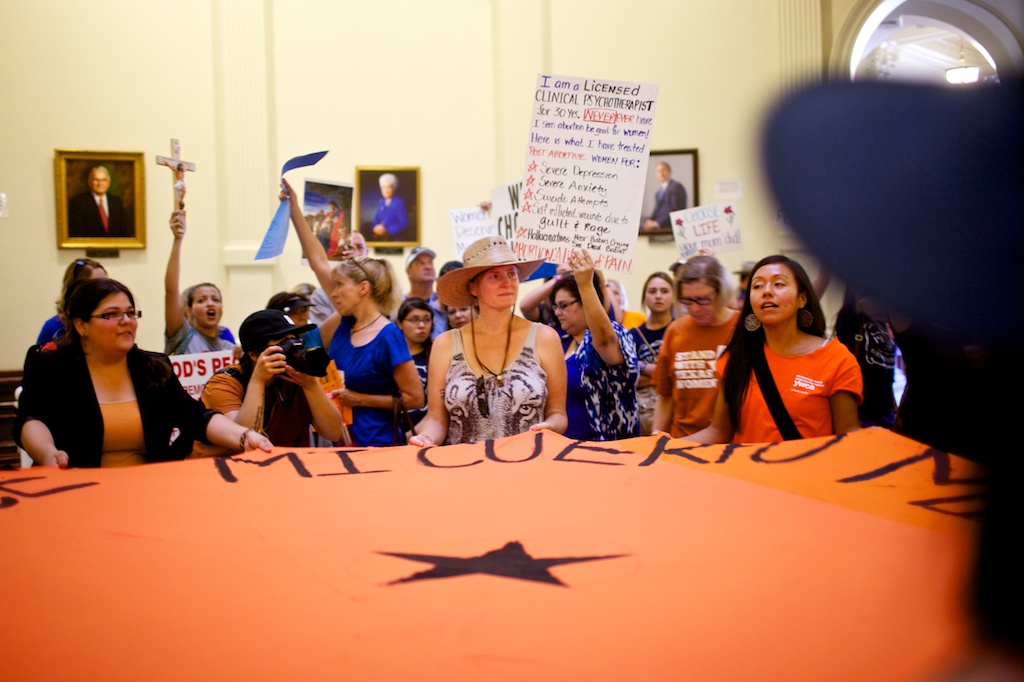
Trust Me, Trust Women
Pregnancy isn’t an idea. It’s a bodily reality. And it must not be an inevitability.

A version of this story ran in the February 2016 issue.
They are the multitudes of people — parents, professionals, students, lawyers, doctors, teachers, babysitters — who have chosen abortion because it was the right decision for them.
They had abortions before Roe v. Wade, and they had them after. They had them because they didn’t want kids right then, and because they never wanted kids. They had abortions so they could care for the kids they already had, or for their own mental health, or for their families’ futures.
Back in 2013, I spent what seemed like an eternity, and seems an eternity ago, at the Capitol listening to their stories, back when a rice farmer named Glenn Hegar and a computer industry worker named Jodie Laubenberg finally passed Texas’ omnibus anti-abortion law, House Bill 2.
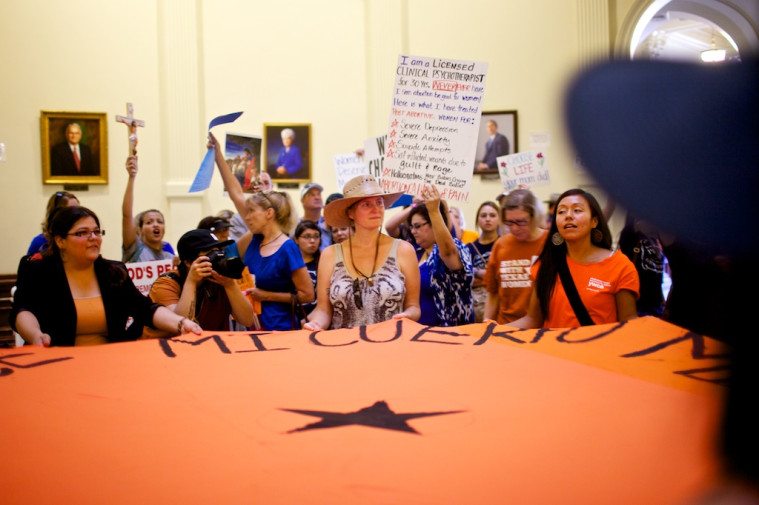
And now many of these same storytellers are sharing these deeply personal experiences not with hostile Texas legislators hell-bent on ending legal abortion care but with the U.S. Supreme Court. Because now there are just nine people who can stop Texas from shuttering all but 10 of the state’s legal abortion providers.
In nearly four dozen briefs led in advance of an upcoming March Supreme Court hearing on the anti-abortion law, a remarkably diverse group of medical and legal professionals, reproductive rights advocates, religious authorities and civil rights groups have asked the court to strike down the law.
Their expertise is undoubtedly valuable. Certainly it’s notable that a bevy of reputable medical organizations, from the American Medical Association to the American College of Obstetricians and Gynecologists, argued in their brief that HB 2 is not just detrimental, but is actively harmful, to patients. The law, these groups argue, “jeopardizes,” rather than enhances, reproductive health. I dearly hope that the Supreme Court will listen to those groups, and also to the U.S. Solicitor General, the ACLU and the governmental entities — including Travis County and 163 members of Congress — that led briefs opposing the law.
But more than anything, I hope the Supreme Court listens to the hundreds of people who shared their own abortion stories in these briefs, many under their full names, even knowing it would put them at risk of shame and stigma from friends and family. Abortion helped them go to school. It helped them meet their partners. It helped them become parents and professionals and productive members of our ostensibly free society.
I trust doctors. I trust constitutional law experts. But more than anything else, I trust the women, transgender men and gender non-binary people who know better than any doctor, lawyer or rice farmer what is best for their own lives.
That’s the game: crow about the babies while wresting health care away from people who are doing their damnedest to live their own lives and to keep themselves and their families safe and healthy.
Pregnancy isn’t an idea. It’s a bodily reality. And it needn’t be an inevitability forced upon unwilling Americans by the same people who want to cut funding for contraception and cervical cancer screenings.
But that’s the game: crow about the babies while wresting health care away from people who are doing their damnedest to live their own lives and to keep themselves and their families safe and healthy.
This case isn’t only about Texas. It’s about what legislators across the country, and not just those in the reliably red South, will do if they are empowered by the highest court in the land to tell outright lies in the service of forced pregnancy. We will see a wave of HB 2-esque laws sweep the nation if the Supreme Court does not strike down this Texas atrocity. That’s not an estimate or a projection. It is a certainty. And for those of us who will need abortions in the coming years, it will be the difference between being able to decide for ourselves the most fundamental tenets of bodily freedom, or not.
I can’t read these abortion stories without thinking of Dr. George Tiller, the Kansas abortion provider who was gunned down in his own church by an anti-abortion fanatic in 2009. He left those of us who believe in reproductive rights with one enduring mantra: “Trust women.”
I trust women. I hope the Supreme Court does, too.
